SUMMARY
This is AI generated summarization, which may have errors. For context, always refer to the full article.
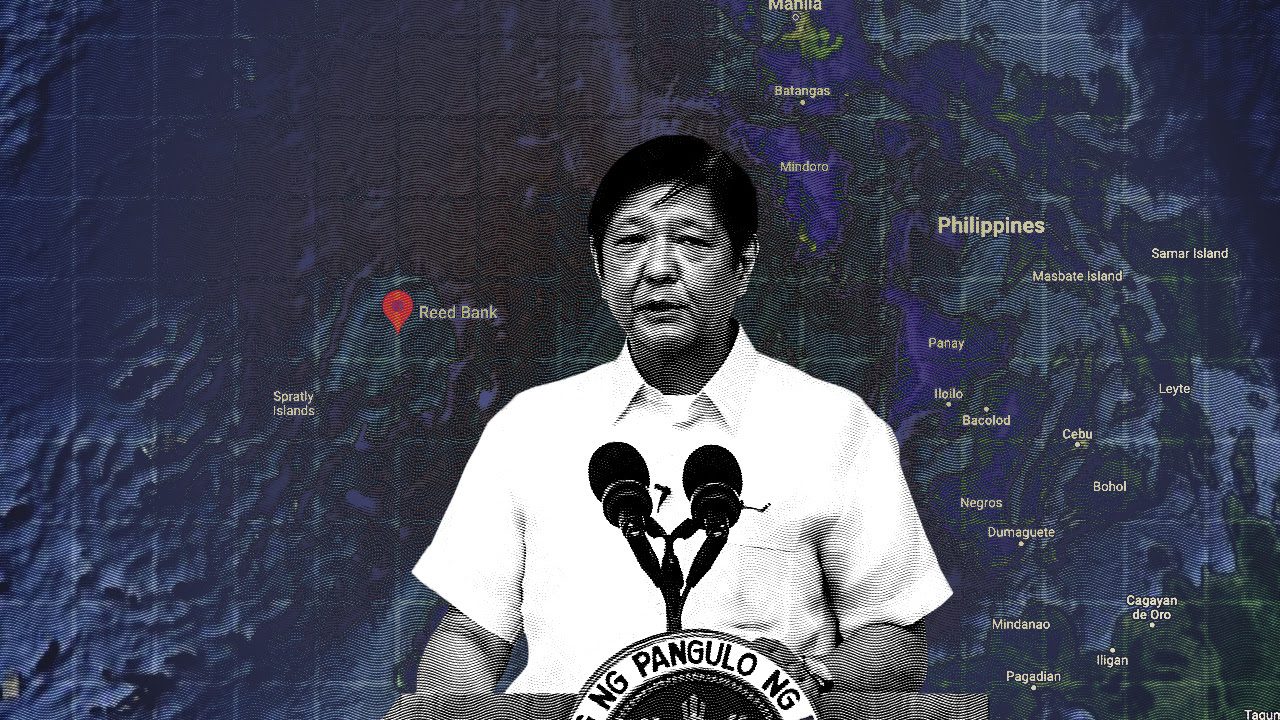
The Philippines has good friends and will not go it alone especially at a time of escalating tension in the West Philippine Sea (WPS), triggered by China’s reckless and aggressive behavior.
That was the resounding message of the first-ever meeting of the heads of states of the US, Japan, and the Philippines, a milestone in the 10-month flurry of trilateral meetings and military and coast guard exercises.
The trilateral summit, held in the White House, was heralded by another first: the three countries plus Australia sailed together in the WPS, a quadrilateral naval drill which showed that the Philippines is shored up by partners and allies, a deterrence to China’s intensifying intimidation and harassment.
On a bilateral level, the Philippines and the US started joint patrols in the contentious waters last year. The frequency of these maritime activities is expected to increase, as President Ferdinand Marcos Jr. and US Defense Secretary Lloyd Austin discussed in a recent meeting.
The Philippines has also conducted joint patrols with other partners such as Australia and Canada.
We are heading to a new normal in the West Philippine Sea. While the Philippine Navy and Coast Guard ships continue their routine patrols, a new element is the participation of friendly countries in what is called “maritime cooperative activities.” We expect the WPS to be busier after the Philippines and Japan conclude their Reciprocal Access Agreement, similar to a Visiting Forces Agreement. Other countries like Canada and France have said that they want to conclude VFAs with the Philippines as well.
Recto Bank
There’s one thing that has been least talked about, though, in the Philippines’ transparent and valiant protection of its maritime features in the West Philippine Sea: Recto Bank (Reed Bank) and its oil and gas reserves. Will the historic trilateral summit embolden Marcos to greenlight oil and gas exploration in Recto Bank? An energy crisis looms as the Malampaya gas field, which provides about 40% of electricity in Luzon, is expected to run dry in 2027.
China is bent on blocking and intimidating Philippine seismic surveys of the area as it has always done in the past. This was one of the reasons then-president Benigno Aquino III decided to haul China to an international arbitration court in 2013.
Under former president Rodrigo Duterte, an attempt to reach an agreement with China to jointly explore in Recto Bank failed. China refused to enter into a service contract with the Philippines because this meant that they would acknowledge our country’s sovereign rights over the area. What’s more, China insists that it’s the only country that can partner with the Philippines in Recto Bank, laying claim to the reef that is rich in oil and gas reserves.
It is clear that Recto Bank lies within the Philippines’ exclusive economic zone, as a 2016 arbitral ruling declared.
Apparently, little progress has been made under Marcos. When asked during the recent forum with the Foreign Correspondents Association of the Philippines, Marcos said: “We always come up against the same argument with China…because when we say that we would like to explore, they insist that these areas are in Chinese territory. And therefore, Chinese law must prevail. We, of course, do not accept that. We say this is Philippine territory, and therefore Philippine law should prevail.”
Marcos made his position clear: “Any exploration [within our EEZ] should be conducted by the Philippines however we choose to do it – if we choose to do it by ourselves, if we choose to do it in partnership with other corporations, which will probably be the case because we don’t have that capacity for very large-scale engineering.”
Look at our neighbors
Our neighbors, Malaysia and Indonesia, have successfully drilled oil in waters claimed by China. They sent their Coast Guard and Navy ships to accompany their survey vessels. Moreover, Australian and US warships conducted exercises near the area where the West Capella, a Malaysian survey ship, was conducting exploration work. In the case of Indonesia, the US sent its aircraft carrier Ronald Reagan near the drilling site.
“Malaysia and Indonesia successfully asserted their sovereign rights in their respective EEZs despite threats of war from China and harassment from Chinese coast guard vessels,” retired Supreme Court justice Antonio Carpio wrote.
Vietnam is undeterred by the China Coast Guard’s “‘monster’ ship” that patrols near the oil and gas fields of Vanguard Bank, where Vietnam does exploration work with foreign partners. Vanguard Bank lies within Vietnam’s EEZ but is claimed by China.
Lead-up to trilateral summit
Let’s step back a little bit and see how trilateral cooperation evolved. The joint statement of President Biden, Prime Minister Kishida, and President Marcos points to the inaugural meeting of the national security advisers in Tokyo in June 2023 as the start of the trilateral momentum. A number of events, however, had already been building up on the ground and on the seas.
In June 2023, days before the Tokyo meeting, the coast guards held their first-ever joint drills in the waters off the coast of Mariveles, Bataan. Before that, way back in 2019, low-key trilateral exercises had already started among the navy, followed by the ground forces, but these were halted by the pandemic. In 2022, a virtual mid-level defense policy dialogue quietly took place.
The trilateral cooperation, however, took on a sense of urgency in February 2022 when Russia invaded Ukraine. This sent shock waves to our part of the world, triggering fears of instability in the region.
In July 2023, the momentum surged as the foreign ministers met in Indonesia and again in September in New York. A high point was the meeting of Kishida, Marcos, and Vice President Harris in Indonesia in September last year.
Ukraine has been on the mind of leaders like Kishida, who said in a speech to the US Congress during his recent state visit, “Ukraine of today may be East Asia of tomorrow.”
Similarly, Marcos, in his inauguration speech in 2022, said, “If the great powers draw the wrong lessons from the ongoing tragedy in Ukraine, the same dark prospect of conflict will spread to our part of the world.”
With China’s twin goals to bring Taiwan to its fold and, oblivious to international law, control most of the South China Sea, it became easy for maritime democracies like the Philippines, Japan, and the US to come together.
Let me know what you think. You can email me at marites.vitug@rappler.com. – Rappler.com
Add a comment
How does this make you feel?
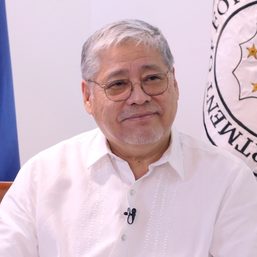
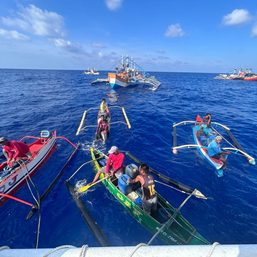
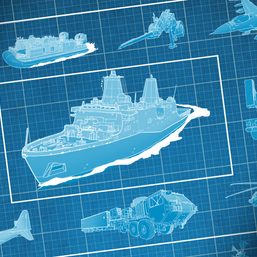
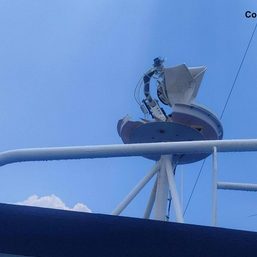
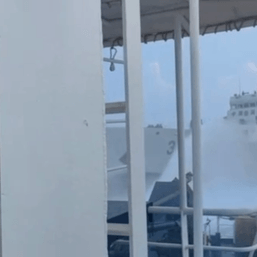
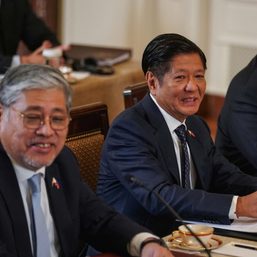
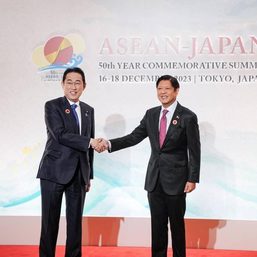
![[Newspoint] The lucky one](https://www.rappler.com/tachyon/2024/04/lucky-one-april-18-2024.jpg?resize=257%2C257&crop=536px%2C0px%2C1080px%2C1080px)

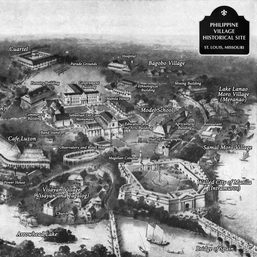
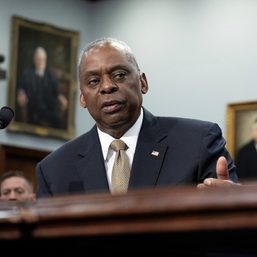
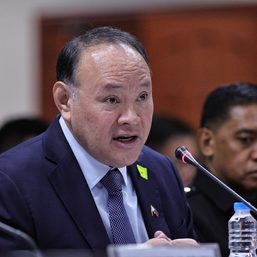
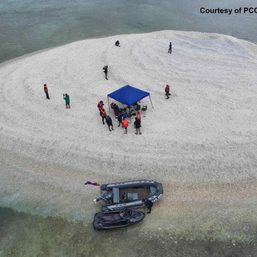
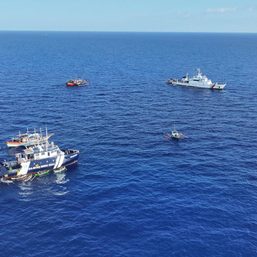
![[Newspoint] Willful indifference](https://www.rappler.com/tachyon/2024/05/np-willful-indifference-05032024.jpg?resize=257%2C257&crop=270px%2C0px%2C720px%2C720px)
There are no comments yet. Add your comment to start the conversation.